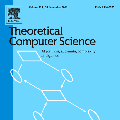In this paper, we design a framework to obtain efficient algorithms for several problems with a global constraint (acyclicity or connectivity) such as Connected Dominating Set, Node Weighted Steiner Tree, Maximum Induced Tree, Longest Induced Path, and Feedback Vertex Set. We design a meta-algorithm that solves all these problems and whose running time is upper bounded by $2^{O(k)}\cdot n^{O(1)}$, $2^{O(k \log(k))}\cdot n^{O(1)}$, $2^{O(k^2)}\cdot n^{O(1)}$ and $n^{O(k)}$ where $k$ is respectively the clique-width, $\mathbf{Q}$-rank-width, rank-width and maximum induced matching width of a given decomposition. Our approach simplifies and unifies the known algorithms for each of the parameters and its running time matches asymptotically also the running times of the best known algorithms for basic NP-hard problems such as Vertex Cover and Dominating Set. Our framework is based on the $d$-neighbor equivalence defined in [Bui-Xuan, Telle and Vatshelle, TCS 2013] and the rank-based approach introduced in [Bodlaender, Cygan, Kratsch and Nederlof, ICALP 2013]. The results we obtain highlight the importance of the $d$-neighbor equivalence relation on the algorithmic applications of width measures. We also prove that our framework could be useful for $W[1]$-hard problems parameterized by clique-width such as Max Cut and Maximum Minimal Cut. For these latter problems, we obtain $n^{O(k)}$, $n^{O(k)}$ and $n^{2^{O(k)}}$ time algorithms where $k$ is respectively the clique-width, the $\mathbf{Q}$-rank-width and the rank-width of the input graph.
翻译:暂无翻译



